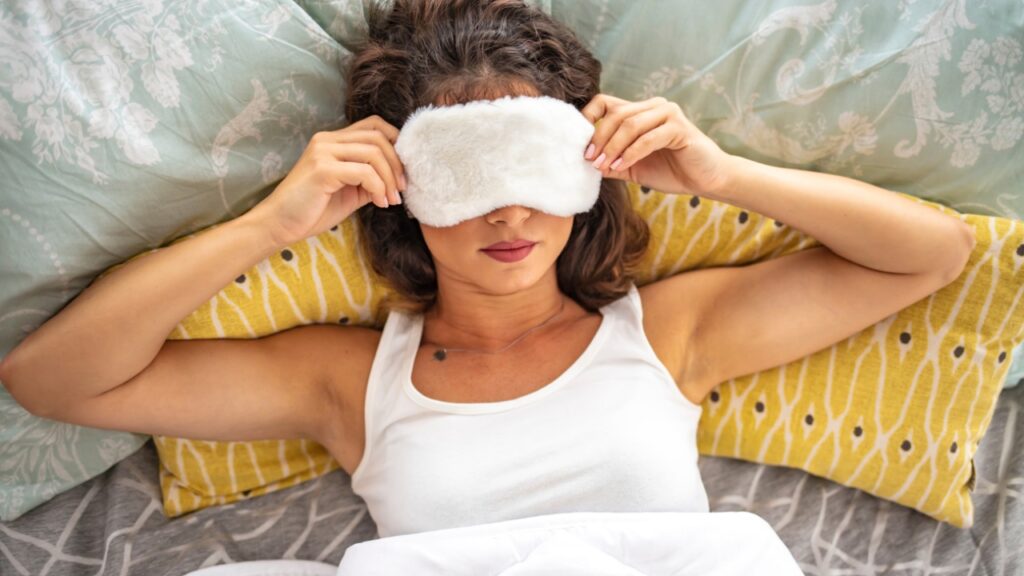We’ve all been there—tossing and turning, staring at the ceiling while the clock ticks louder than a marching band. Sleep is essential, yet it often eludes us when we need it most.
Many factors can disrupt our sleep patterns, whether it’s the hustle and bustle of daily life, a racing mind, or those pesky screens that seem to be glued to our hands.
But what if I told you there are simple, natural solutions in your home that can help you catch those elusive Z’s? That’s right! This article explores some fantastic home remedies for better sleep that can turn your restless nights into peaceful slumbers.
So, let’s dive in and reclaim our nights!
Why Sleep is Important

Before we get into the nitty-gritty of home remedies for better sleep, it’s crucial to understand why sleep is so darn important. After all, it’s not just about feeling groggy the next day. Here’s a quick rundown of why sleep matters:
- Physical Health: Sleep is vital in maintaining our immune system, reducing the risk of chronic diseases, and helping with weight management.
- Mental Clarity: A good night’s sleep enhances cognitive functions, memory, and overall mental performance. Have you ever tried to solve a problem with two hours of sleep? It’s like trying to run a marathon on a sprained ankle!
- Emotional Well-being: Sleep helps regulate emotions, reducing stress, anxiety, and the likelihood of mood swings. When we’re well-rested, we’re better equipped to face the day!
Now that we know why sleep is essential let’s explore some home remedies to help you drift off faster and sleep deeper.
Home Remedies for Better Sleep

1. Create a Sleep Sanctuary
Your bedroom should be your haven, a place that invites relaxation. Here’s how to transform your space:
- Declutter: A tidy room leads to a tidy mind. Remove any distractions that might keep you awake.
- Comfortable Bedding: Invest in a good mattress and soft pillows. Trust me, you’ll feel the difference!
- Darkness is Key: Use blackout curtains to keep light at bay. If you can’t do that, a sleep mask can work wonders.
2. Get Cozy with Aromatherapy
Did you know that scents can significantly affect your sleep quality? Here are some essential oils known for their calming effects:
- Lavender: Known for its relaxing properties, lavender oil can help reduce anxiety and promote sleep. Just a few drops on your pillow can do the trick!
- Chamomile: This sweet-smelling flower is not just for tea; its essential oil can help you unwind after a long day.
- Sandalwood: Its earthy aroma can help you feel grounded and relaxed, perfect for a good night’s sleep.
3. Sip on Sleep-Inducing Teas
Sometimes, you only need a warm cup of something soothing before bed. Here are some herbal teas that can help you unwind:
- Chamomile Tea: This classic sleep aid can help you relax and fall asleep faster.
- Valerian Root Tea: Valerian root has been used as a natural sedative for centuries.
- Peppermint Tea: If you’ve got an upset stomach keeping you awake, peppermint can soothe your digestive system and help you relax.
4. Try a Bedtime Snack
Believe it or not, what you eat before bed can impact your sleep. Here are a few snacks that might help:
- Almonds: Rich in magnesium, which helps relax muscles and promotes sleep.
- Bananas: Packed with potassium and tryptophan, bananas can help you feel sleepy.
- Oatmeal: A warm bowl of oatmeal can raise insulin levels slightly, allowing tryptophan to enter the brain more easily.
5. Stick to a Sleep Schedule
It sounds simple, but keeping a consistent sleep schedule can do wonders. Here’s how:
- Set a Bedtime: Try to go to bed and wake up at the same time every day, even on weekends. Your body thrives on routine!
- Create a Wind-Down Routine: Spend 30 minutes before bed doing calming activities, like reading or a warm bath.
6. Limit Screen Time Before Bed
Those smartphones and tablets are notorious sleep thieves! Here’s what you can do:
- Set a Curfew: Turn off screens at least an hour before bed. Give your brain a break!
- Use Blue Light Filters: If you can’t resist, try using a blue light filter on your devices to reduce the effects of screen time.
7. Get Moving During the Day
Exercise is a powerful tool for better sleep! Here’s how it helps:
- Release Endorphins: Physical activity helps your body produce endorphins, which can elevate your mood and help you sleep better.
- Tire Your Body Out: Regular exercise can help you fall asleep faster and enjoy deeper sleep. Just try not to work out right before bed—give yourself at least a few hours to wind down.
8. Practice Relaxation Techniques
Sometimes, it’s all about calming that busy mind. Here are some techniques you can try:
- Meditation: Spend a few minutes focusing on your breath. It can work wonders for reducing stress and promoting sleep.
- Progressive Muscle Relaxation: Start from your toes and work your way up, tensing and relaxing each muscle group. You’ll be surprised at how quickly you drift off!
- Deep Breathing: Inhale deeply through your nose for a count of four, hold for four, then exhale through your mouth for another count of four. Repeat a few times.
9. Keep the Temperature Cool
Believe it or not, the temperature of your bedroom can affect your sleep quality. Here’s how to keep it cozy:
- Aim for 60-67°F (15-19°C): This temperature range is often considered ideal for sleep. Use fans or blankets to find your perfect balance.
- Invest in Breathable Bedding: Natural fibers like cotton and linen can help regulate your body temperature, keeping you cool and comfortable.
10. Incorporate Sleep-Friendly Supplements
Sometimes, our bodies need a little extra help. Here are a few natural supplements to consider:
- Melatonin: This hormone helps regulate sleep-wake cycles. Consult with a healthcare professional to see if it’s right for you.
- Magnesium: Known for its calming effects, magnesium can help relax muscles and improve sleep quality.
- L-theanine: This amino acid in tea can promote relaxation and improve sleep quality.
Conclusion
There you have it—an array of home remedies for better sleep that can help you turn those restless nights into tranquil slumbers! Remember, finding what works best for you is the key to a good night’s sleep. Whether it’s creating a cozy sleep environment, sipping on a soothing tea, or incorporating relaxation techniques into your routine, there are plenty of options to explore. So, why not give these remedies a try? With a little effort, you might discover the secret to a peaceful night’s sleep, waking up refreshed and ready to tackle whatever the day throws! Sleep tight!
Frequently Asked Questions (FAQs)
What are some quick home remedies for better sleep?
If you need quick solutions, try:
- Drinking a warm cup of chamomile tea.
- Use lavender essential oil on your pillow.
- Practicing deep breathing exercises for a few minutes.
How long should I sleep for optimal health?
Most adults need between 7-9 hours of sleep per night. Listen to your body, though—some folks may need more or less.
Can food affect my sleep?
Absolutely! Foods rich in tryptophan, magnesium, and melatonin can promote better sleep. On the flip side, heavy meals, caffeine, and alcohol can keep you awake.
Are there specific sleep positions that are better for sleep?
Sleeping on your side is often recommended, especially for those with snoring issues or sleep apnea. But ultimately, choose a position that feels comfortable for you!
What should I do if I can’t fall asleep?
If you tossing and turning, try getting out of bed and doing a calming activity, like reading or meditating, until you feel sleepy again. Avoid staring at screens, though!


Leave a Reply